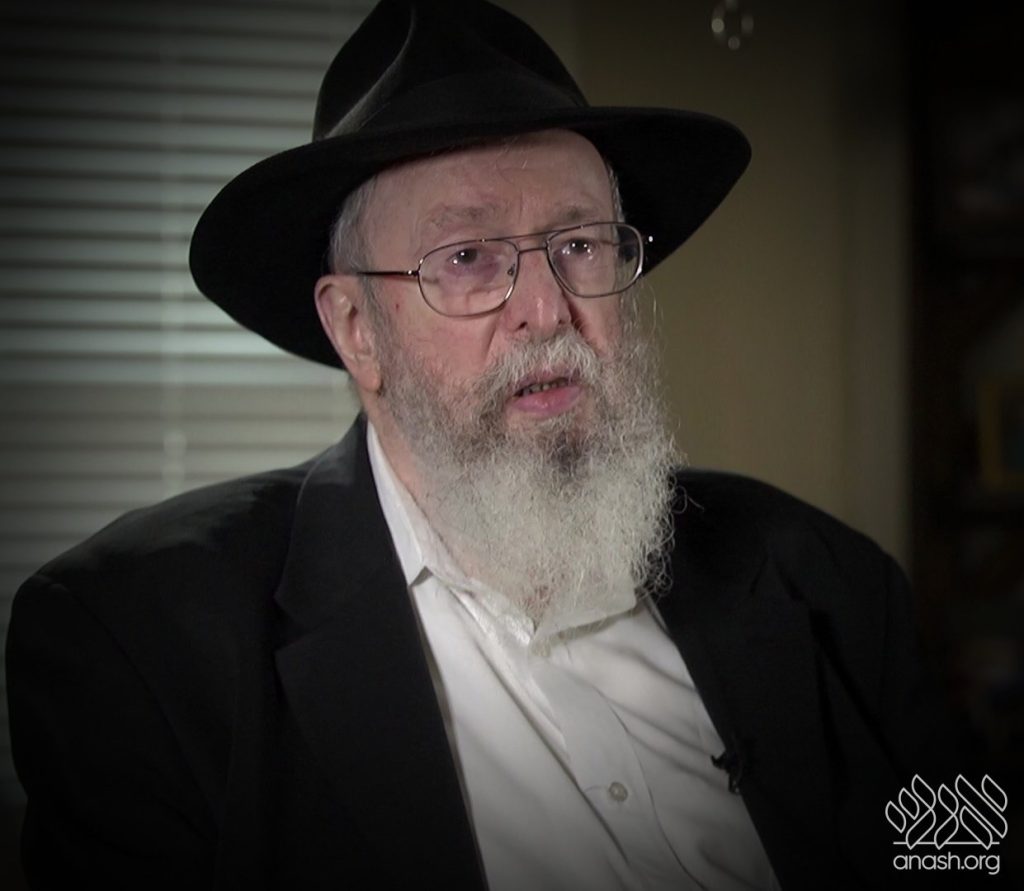Listen to the article
Remembering Rabbi Yisrael Caroline: From Civil Rights Activist to Chabad Revolutionary
Rabbi Yisrael (Larry) Caroline, a former civil rights activist and anti-war advocate who transformed into a dedicated Torah educator, passed away suddenly on Friday night at the age of 85.
Born in upstate New York to a Yiddish-speaking family that valued Jewish identity without strict religious observance, Caroline’s early experiences with antisemitism sparked a lifelong commitment to fighting discrimination in all its forms.
During his university years at Rochester, Caroline emerged as a prominent voice for equality, serving as president of the campus NAACP chapter while pursuing philosophy studies. His activism extended beyond theory as he organized protests against discriminatory fraternity practices and became a respected advocate for civil rights during a pivotal era in American history.
Caroline’s academic career took him to Kentucky State College during the height of the civil rights movement, where his teaching intersected with his activism. Later, as a professor at the University of Texas, he gained notoriety for his vocal opposition to the Vietnam War. His passionate call for “a revolution” to end the conflict made front-page news across Texas newspapers and ultimately cost him his university position.
This professional setback became the catalyst for his spiritual transformation. After relocating to Buffalo with his wife Dina, the couple attended Yom Kippur services at a small Chabad House led by Rabbi Noson Gurary. Caroline would later describe this experience as transformative, saying, “For the first time in my life, I saw people acting like they should act if they really believed in G-d.”
This encounter with authentic religious practice drew him into the Chabad-Lubavitch movement. In 1974, during his first private audience (yechidus) with the Lubavitcher Rebbe, Rabbi Menachem Mendel Schneerson, Caroline shared his background in left-wing activism. The Rebbe’s response would define his life’s second act: “You used to make propaganda for the revolution. Now you will make propaganda for the other revolution.”
Taking these words to heart, Caroline redirected his revolutionary spirit toward Jewish education. He settled in Philadelphia and joined Beth Jacob School, initially as a fundraiser before becoming its director. His leadership was characterized by an unwavering commitment to making Torah education accessible to all Jewish children regardless of background or financial constraints.
When the wave of Russian Jewish immigrants began arriving in the United States, Caroline ensured their children found places at Beth Jacob, often providing full scholarships despite significant financial pressures on the institution. His colleagues recall how he would frequently invoke the Rebbe’s vision that every Jewish child deserves a Torah education, considering the matter non-negotiable regardless of economic realities.
Caroline’s intellectual pursuits continued into his later years as he worked on a book challenging atheistic philosophy. Drawing on his academic training in philosophy, he sought to demonstrate how rational thought itself leads toward belief in G-d rather than away from it.
The sudden passing of Rabbi Caroline marks the end of a remarkable journey from secular political revolutionary to religious educator. His life embodied a unique bridge between American progressive politics of the 1960s and traditional Jewish education, demonstrating how the pursuit of justice and moral clarity can find expression in different contexts.
He is survived by his wife Dina Caroline and their children Rabbi Yoel, Daniel, Ari, David, Civia, and Rafi Caroline, as well as Reuven and Omid Niknam. His legacy lives on through both his family and the countless students whose lives were shaped by his educational vision and commitment.
Fact Checker
Verify the accuracy of this article using The Disinformation Commission analysis and real-time sources.




12 Comments
I’m curious to learn more about Rabbi Caroline’s spiritual journey and what led him to embrace Orthodox Judaism after his earlier activism. His life seems to have been a remarkable synthesis of social justice and religious devotion.
That’s an excellent point. His transition from civil rights to Chabad leadership must have been a profound personal transformation. I wonder what insights he gained along the way.
Rabbi Caroline’s evolution from civil rights leader to Chabad revolutionary is quite fascinating. It speaks to the power of faith to transform one’s worldview and calling.
Yes, his story is a testament to the capacity for personal growth and the ability to find new purpose later in life. An inspiring life well-lived.
The article provides a helpful overview of Rabbi Caroline’s multifaceted life, from his upbringing to his civil rights work to his eventual Chabad leadership. It’s a fascinating trajectory that speaks to the complexity of the human experience.
Sad to hear of Rabbi Caroline’s passing. He led an impactful life as both a civil rights pioneer and a dedicated Torah scholar. His commitment to social justice and his spiritual journey are inspiring.
Agreed, Rabbi Caroline’s life was truly remarkable. From activism to education, he made meaningful contributions across so many important fronts.
It’s always inspiring to learn about individuals who dedicate their lives to fighting injustice and promoting positive change, as Rabbi Caroline did. His story is a powerful reminder of the impact one person can have.
Absolutely. Rabbi Caroline’s life was truly remarkable in its scope and influence. He left an indelible mark on both the civil rights movement and the Jewish community.
The article highlights Rabbi Caroline’s versatility and adaptability, transitioning from civil rights activism to Orthodox Jewish leadership. His ability to find new callings and reinvent himself is admirable.
While Rabbi Caroline’s early work in the civil rights movement is well-documented, I’m less familiar with the details of his later religious activities and leadership within the Chabad community. It would be interesting to explore that part of his life and legacy in more depth.
I agree, the religious side of Rabbi Caroline’s life and work deserves more attention. His ability to blend social justice with traditional Jewish scholarship is quite remarkable.